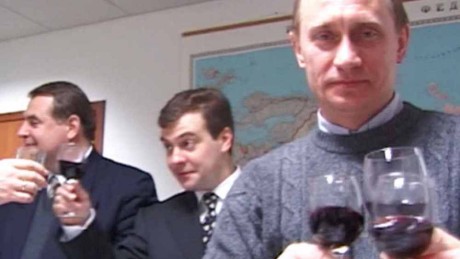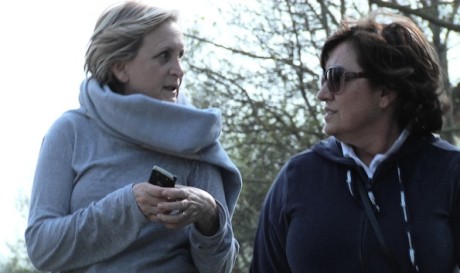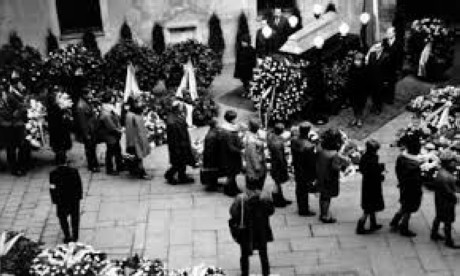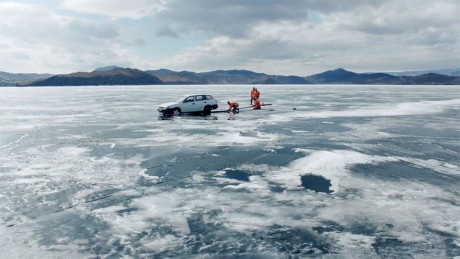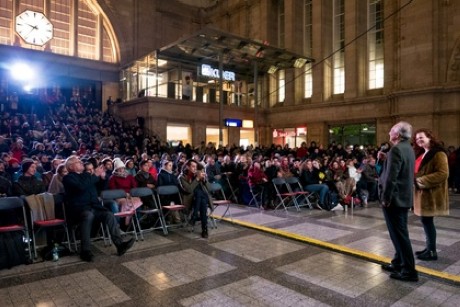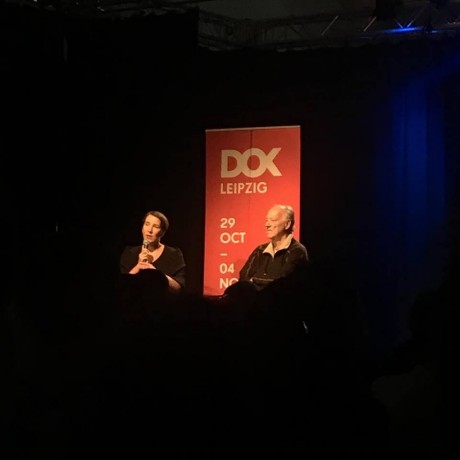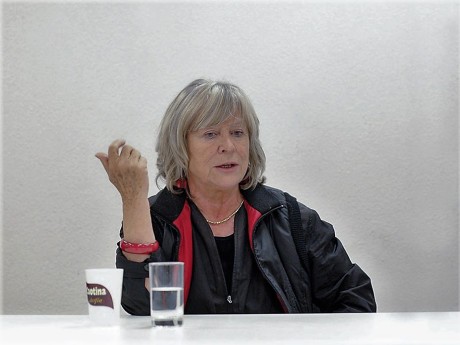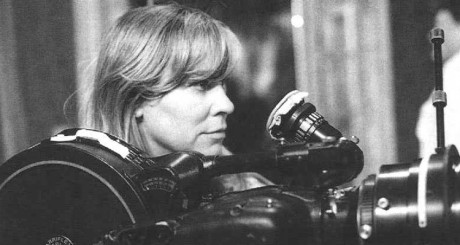


Torben Skjødt Jensen: Carl Th. Dreyer – min metier
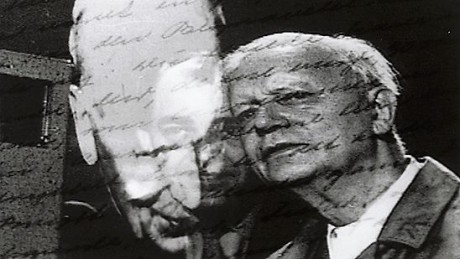
”De vil lave en film om mig? Men jeg er da ikke interessant. Det er mine film som er interessante.” Carl Th. Dreyers svar dengang for længe siden var til en anden instruktør, en forgænger, men Torben Skjødt Jensen tager i sin film konsekvensen fuldt ud, han laver sin store filmbiografi som en omfattende og dyb overvejelse af alle Dreyers store og små film, af deres æstetik, som de konsekvent etablerer som ufravigelig stil og af den poetik, de afsætter som konsekvens, og som Dreyer selv formulerer, såvel strengt og generelt som i præcise detaljer hentet til filmen fra arkivstof og fra hans omfattende litterære arbejde.
Og det er jo så stil, ligesom den filmmåde jeg har mødt i Skjødt Jensens film al tid, men som først fæstnede sig som stil i min forståelse med Flâneur, 1993 ved en visning i en meget stor biograf i Clairmont-Ferrand. Hans film hører hjemme i biografen. Det er jo fotograferingens drømmende skarphed, musikkens arkitektur i en fremmedheds velkendthed, sætningernes helt nye gammeldags alvor, alt samlet i collagens tillid til associationens relevans af klippenes blide konsekvens.
Torben Skjødt Jensen lagde med Dreyerfilmen fra 1995 denne stil ned over Dreyers indsats i dansk kunst, i verdenskunsten. Nu har han understreget sin stil og forbedret sin film, især ved, at en lang række forfærdende smukke og nyrestaurerede citater fra Dreyers film er lagt ind og på plads i hans nye essays fortællende forløb, så de ligesom bæres frem i procession gennem 1995-værket som fortjener det, bæres i triumf.
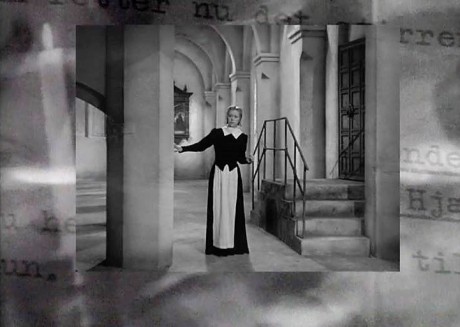
Det er så filmen Carl Th. Dreyer – min metier REBORN, hvilken præcis titel! Dobbelt selvbevidst. Det er en fuldendt ny film, et nyt mesterværk af omhu og skønhed til Dreyers værk som hyldest og som fortsat undersøgelse i den erkendelse, at arbejdet bliver han som filminstruktør og jeg som publikum aldrig færdig med.
Danmark 1995 / 2018, 108 min.
RECEPTION OG PREMIERE
Filmen vises i Cinemateket i København i overmorgen ved et fødselsdagsarrangement og her er instruktørens venlige indbydelse:
Den nye udgave af min Carl Th. Dreyer film, REBORN-udgaven, er meget snart klar til visning den 8. november i Cinemateket i Filmhuset.
Og det er sådan en fornøjelse at se dygtige Harald Paalgards smukke 35mm sort/hvide interviewscener komme til sin fulde ret og rigtige aspekt-perspektiv i digital udgave. Filmens nye scener er fotografet af Henrik Ørslev, min lige så dygtige fotograf fra Strunge-filmen.
Filmlektor Peter Schepelern repræsenterer de levendes rige, for ellers er filmen jo et lidt vemodigt gensyn med et cast, hvor alle nu er gået bort: Hélène Falconetti, Lisbeth Movin, Preben Lerdorff-Rye, Jørgen Roos, Birgitte Federspiel, Henning Bendtsen, Axel Strøbye, Baard Owe og så ikke mindst mesteren selv, Carl Th. Dreyer, som i den grad har det store ord i filmen.
Ligeledes er klip fra Jeanne d’Arc-mesterværket tilbage i filmen igen, en udvidet sektion om Dreyers stumfilm med klip fra flere af dem, alle klip fra filmene er nu de ny-digitaliserede versioner i de rigtige formater, og der er masser af nye stills/grafik/plakater, som ikke var tilgængelige tilbage i 1995.
Den nye udgave er ganske simpelt en fest for øjet og med en ny spilletid på 108 minutter.”
Husk, at der er reception i Asta Bar kl. 15.00-16.30, inden filmen vises. Billetter kan bestilles og købes på
www.dfi.dk/cinemateket/biograf/events/event/carl-th-dreyer
www.facebook.com/717078205/videos/ (trailer)
